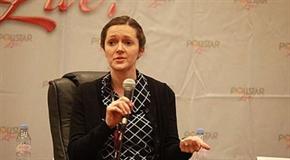Pollstar Live! Facebook Advertising
Good thing everyone, their grandmother and maybe even their dog is on Facebook.
The science experiment that is Facebook marketing is paying off for many in the concert industry, but a few things must be considered before launching a campaign to promote an artist or event.
First, traditional marketing messages just don’t work anymore. Facebook’s advertising ecosystem is all about content and authentic conversation. The better the content, the more likely ads will become viral and reach people outside of the core group of fans for an artist or event.
Quality messages should be in the voice of a brand or artist, be about the brand or artist and should be visual, explained Mike McGinley, who founded SRO Consultants and now works on the predictive marketing startup CitizenNet.
McGinley described the system using the metaphor of a marketing funnel with awareness at the top, discovery in the middle and conversion at the bottom.
“Getting the right message into the discovery portion of the marketing funnel is critical. [Before] you’d have to call a radio station and it would be really expensive to get your message out there. Today, it costs you nothing to put your Facebook page up and talk about your event, your artist, etc.,” he said.
Messages will typically get sent to 15 to 20 percent of the friends of a page and particularly highly ranked messages will keep spreading through Facebook’s news feed organically.
But there are also limitations to consider. Facebook offers paid ads on the right side of the page and in the news feed but only those news feed ads, or “promoted posts,” can be seen by mobile users.

“We’re seeing a lot higher engagement in the news feed than on the right-hand side,” Facebook’s Stephanie Pocino said. “Overall the average clicks are around 2 percent in the news feed versus the right-hand side where it’s around .06 percent, so the engagement is going to be a lot higher.”
Pocino offered Cirque du Soleil as one case study of a marketer that used Facebook to grow ticket sales by 200 percent in 2012, and also noted the Tough Mudder endurance race saw five to 10 times return on investment through its Facebook ad campaigns.
CAA’s Glenn Miller has also seen results. He explained the agency tends to run sponsored stories and RSVP ads on Facebook during the pre-sale period of a show that might entice fans with a special pre-sale password, which works “tremendously.”
At the onsale, he’ll switch to a promoted post in the news feed to maximize ad views before running a promo ad featuring a contest that offers a meet and greet or free tickets to help reach outside the core group of an artist’s fans.
Ads that feature an artist’s lifestyle also apparently work well.
“Someone like Kid Rock would be like, ‘Is Louisville ready to rock on Saturday night?’” he said. “Turn it into a lifestyle play instead of just straight marketing. Do an engaging photo. If you’re doing Ke$ha it’s all about partying, so go after that voice. Try to connect with the people it’s going to get in front of … that voice is going to carry you a lot farther.”
Managing advertising on Facebook can get pretty technical with endless options for optimizing and targeting particular demographics but Pocino promised it doesn’t have to be rocket science. Facebook.com/ads/manage and Facebook.com/business are two places to start playing around and learning about the various features, she said.
And if that sounds too difficult, McGinley suggested finding a 25-year-old intern to manage your social media or hiring a consultant because the only thing you can count on with Facebook ad products is change.
“At my company if you’re over 25 you’re too old,” he said.
 Daily Pulse
Subscribe
Daily Pulse
Subscribe

